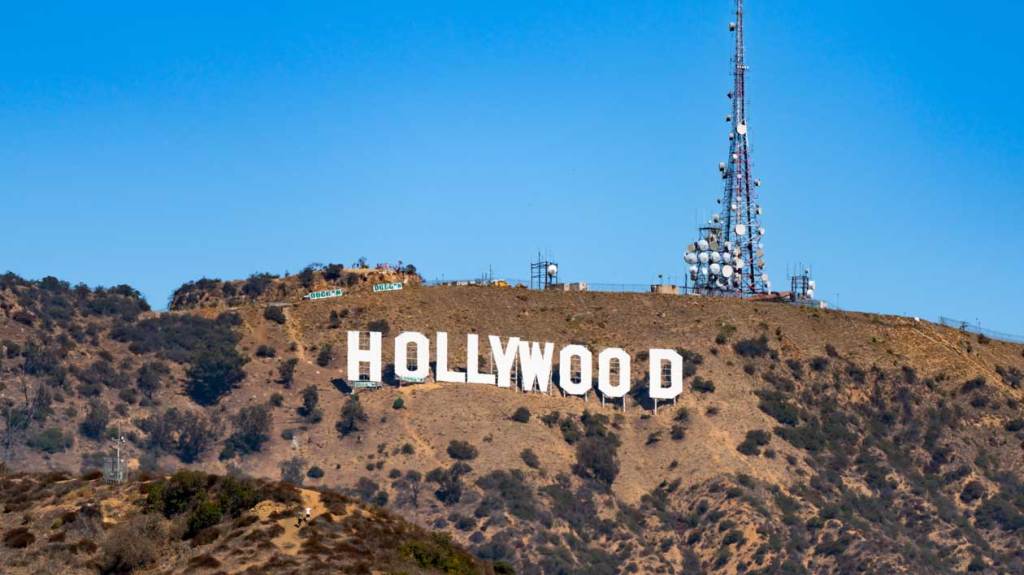
If Netflix, HBO, Disney, The CW and others slash their budgets for TV and movie content, as they’ve been suggesting for more than a year, the music industry could take a hit in the steady song-placement business that generates hundreds of millions of dollars annually for rightsholders.
“We’ve been in a boom period. Cutting back on production would cut down on that revenue, for labels and publishers,” says Kier Lehman, a music supervisor who works on Abbott Elementary and Spider-Man: Across the Spider-Verse. “It’s a pretty direct effect.”
After the COVID-19 quarantine ended, the decrease in demand helped create some problems for the streaming business. That has created challenges for the video streaming business: Netflix’ spending on content declined in 2022, after company officials announced a “pulling back”; HBO Max removed dozens of streaming titles last summer to cut costs; and Disney announced $5 billion in cuts two months ago, including 7,000 jobs, although newly returned CEO Bob Iger has emphasized streaming growth. The CW, Showtime and others have also removed content or cut costs.
“We’re trying to be smart about it and prudent in terms of pulling back on some of that spend growth to reflect the realities of the revenue growth,” Spencer Neumann, Netflix’s CFO, said last year.
So far, executives at labels and publishers – which generally split revenue from synch licenses 50-50 – say they haven’t noticed a change in licensing volume or rates, but in a wobbly economy beset with entertainment layoffs, they’re bracing for a harder business. “The idea of less content is always going to be a concern for us,” says a source at a major label. “If there’s going to be a slowdown in content production, it’s going to be a slowdown in music usage — it’s definitely something we’d be keeping an eye on.”
While its impact won’t be felt for a while, the ongoing Writers Guild of America strike has already pushed the pause button on numerous productions, including Stranger Things, Saturday Night Live and Loot.
Synchs have been a remarkably consistent revenue stream for the record business over the last five years, as Netflix, Hulu, HBO and others competed for viewers and created a content boom. Synch revenues for recorded music hit $285.5 million in 2018 and, after a slight dip, rose to $318 million last year. (Publishing revenue has been even more robust in recent years, growing from $696 million in 2018 to more than $1.2 billion in 2021, according to the National Music Publishers Association; synch makes up nearly 26% of that total revenue.) Synch executives at labels and publishers say they’re preparing for more challenging times. “I don’t think anybody’s not going to be affected by cutbacks,” says Oscar Martinez, creative director for film, TV and Hispanic advertising with publisher peermusic. “We expect to feel a little bit of it.”
How will labels and publishers contend with content cuts once they kick in? “We have a plan in place,” Martinez says, predicting a pivot to placing music in games such as Fortnite and FIFA. “There’s still content being made and opportunities to be had.”
Amy Hartman, svp of creative services for film and TV music at Spirit Music Group, adds that the publisher is emphasizing “budget-friendly” moves — remixing classic hits such as Billy Squier’s “The Stroke” for the Air trailer, and encouraging songwriters to create originals that can be licensed more affordably than familiar hits. “That’s one way we can make up loss of synch revenue,” she says.
Sara Torres, sync and licensing supervisor for ASAP Clearances, which works with labels and publishers to clear songs, suggests the number of scripted shows may decline in favor of reality shows — which tend to use more tracks on tighter budgets. A scripted show might blow its budget on one big song, by, say, the Beatles, then try to round out its song lineup with more affordable music by indie artists or “library music.” The reality shows Torres works with have “most favored nations” clauses, so all synchs receive the same fees. “There’s always a whisper of cutbacks with any network, so you just have to be ready,” she says.
For now, label executives say they’re not worried about content cutbacks or more inflexible network demands for lower rates. “It’s business as usual. It’s not doomsday,” says Esther Friedman, Sony Music Publishing’s svp of creative marketing for film and TV, although she adds: “This could be a different conversation in six to nine months.”
Those who work every day with production companies say labels and publishers should prepare for cutbacks. “You might be looking at the same amount of TV shows, but they have less episodes,” says Justin Kamps, music supervisor for Grey’s Anatomy and Bridgerton. “That is rough for everyone involved.”
At least to some extent, any decrease in production would hurt the music business at least somewhat. “If there are fewer shows, there will be fewer places to place music,” says Lindsay Wolfington, a veteran music supervisor whose current shows include Netflix’ Virgin River and Starz’ The Venery of Samantha Bird: “That’s just a fact.”













